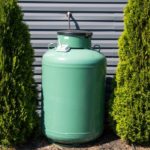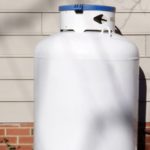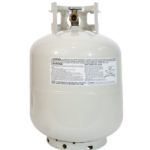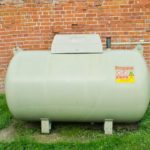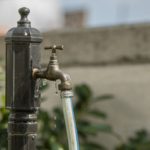The smell of gas isn’t something anyone wants to come across in or near their home, and if you smell it, you shouldn’t take the situation lightly. But did you know that the smell actually exists for your safety?
Propane is naturally odorless, which makes it very hard to detect. For that reason, manufacturers add chemicals that produce a rotten, egg-like smell. If you smell propane, quickly check the possible sources and, if you can’t find the source, leave the area and contact emergency services.
Should you notice a propane leak, checking a propane tank or maybe a gas-fed hot water heater (though that’s probably receiving natural gas, not propane), and just turn everything off. Be sure not to light any burners or cigarettes in the vicinity of the suspected gas leak, and don’t hesitate to elevate the situation to the local authorities who are trained to deal with this situation.
What Causes Propane to Smell Like Rotten Eggs?
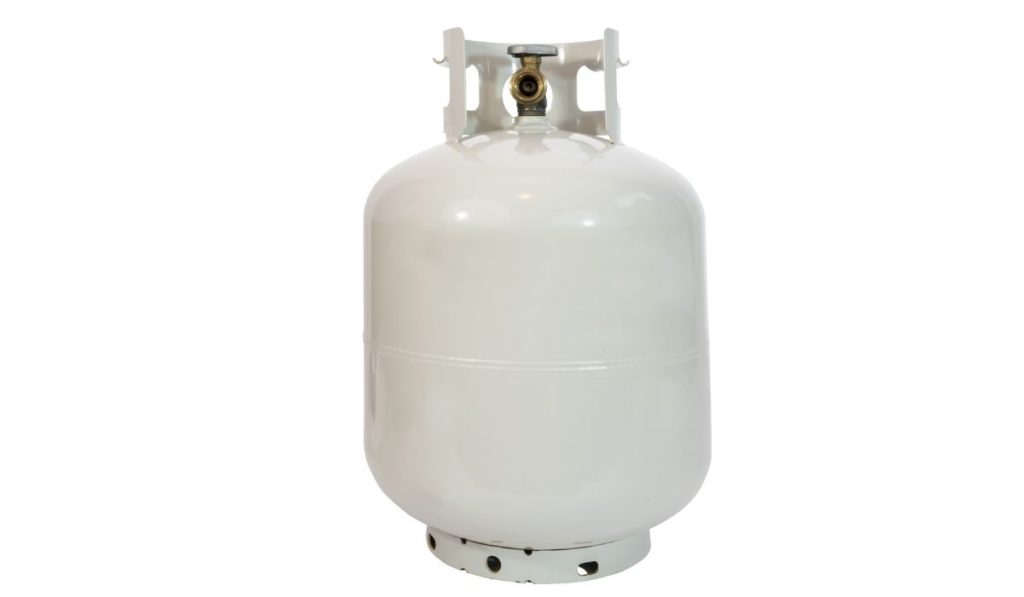
Anyone who has been around propane knows the rather awful smell it produces. However, you might be surprised to know that propane itself does not indeed have any kind of smell; it’s odorless. The pungent smell is added later so that people can identify any hazardous situations that might arise.
Manufacturers add a chemical to propane to give it the very distinct smell that resembles rotten eggs. This smell makes the detection of propane much easier.
With that said, propane and the tanks it usually comes in have been manufactured with various safety measures. There are specific relief valves to prevent leaking, and the tanks themselves are manufactured to handle everyday use and regular daily impacts.
However, the odor is still there so that in the case of any leaks, people can instantly identify the issue and take the proper steps to secure the situation. If the manufacturers don’t add this odor, propane can continue to leak and no one will notice. And this can become a serious safety hazard.
An undetected propane leak can cause flames and even explosions, as well as various other kinds of property damage.
If you smell or detect that propane has been leaking in your house, remember to immediately extinguish all and any flames, including sparks. You should also shut off the gas if you can and immediately remove yourself from that area, since it’s not safe.
What Should You Do if You Smell Gas in or Around Your House?
Once you understand why propane has a pungent smell and that it exists for your safety, the next step is to understand how to act if there is a propane leak in your or around your house. Here are a few things you should do if there is a propane leak around you or in your house:
Shut Off the Gas: Many gas leaks occur because someone forgot to turn off the grill, stove, or anything else that was using the gas. If you can quickly identify the source of the leak, shut it off immediately.
Leave the Area: Evacuate yourself and everyone in the area where the propane was leaking. Leaking propane can be a safety and health hazard, and the first priority in such a situation is to move everyone out of harm’s way.
Extinguish Flames: If you’re in the kitchen, at a BBQ, or anywhere else where a flame is being used, immediately extinguish it. The flames can react with the propane and result in an explosion or a fire. If there are any sparks, you should extinguish them as well.
Report It: the next thing you want to do after removing everyone and yourself from the site is to report the leak. You should firstly try to reach out to your supplier to inform them, and if you can’t get a hold of them, alert 911. You can also call your local fire department.
Don’t Return to the Building/Area: Once you’ve called the relevant authorities, you must wait until they arrive and clear the area before you return. It’s very important to have your house or the area where the leak occurred assessed by professionals. They will inspect and sweep the area and make sure it’s absolutely safe for you and any others to return to.
Get Your System Checked: Simply addressing a leak in the moment often isn’t the end of the story, especially if you weren’t able to identify the source of the leak. You should call your propane supplier to have the entire system checked. This will ensure that any faults are identified and fixed before you start using the propane again.
Does a Propane Smell Always Mean There’s a Leak?
Just because you smell propane does not necessarily mean there’s a leak.
Before panicking, make sure that what you’re smelling is indeed propane and not garbage, sewage, skunk spray, or a dead animal. Also don’t forget that you can smell some propane when you light up the stove, which is normal and nothing to be concerned about.
In addition to the stove, a faint smell of propane can also be detected when lighting up a hot water heater, another appliance that is using the propane, or the pilot light in a gas heater or fireplace.
With all that said, if the smell doesn’t go away or is particularly intense, then you should treat the situation like a leak.
Can You Air Out a Home After a Gas Leak?
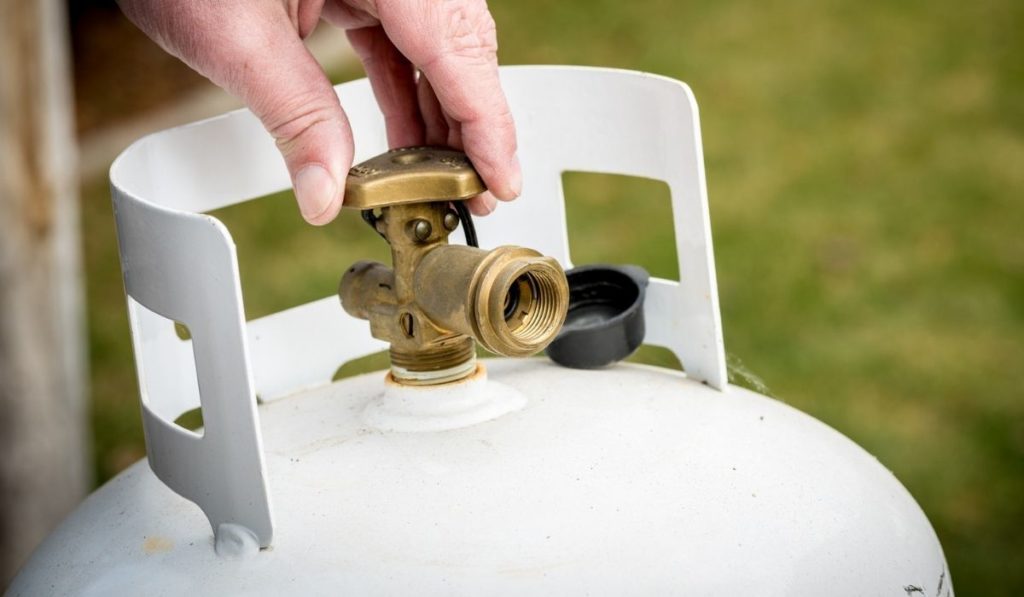
While there are many measures meant to prevent a propane leak from occurring, they do happen occasionally. If it happens to you, you can always air out your house. Here’s what you need to know if you want to air out the house after a propane leak:
There are several factors that affect the amount of time needed to air out a house. The size is a major factor; smaller houses take less time to air out when compared to something like a 3-story house that has numerous rooms.
Secondly, the location plays an important role. If your house is located in a wide-open space, it’s much easier to air it out, thanks to the constant airflow. However, if your house is in a small or confined space, it can be difficult and take more time.
Placing a box fan or other industrial air-moving device like this Mini Commercial Air Mover (on Amazon) in each room for awhile, or at a centralized doorway, will help turn the air in the house over much faster. They’re pretty loud though.

